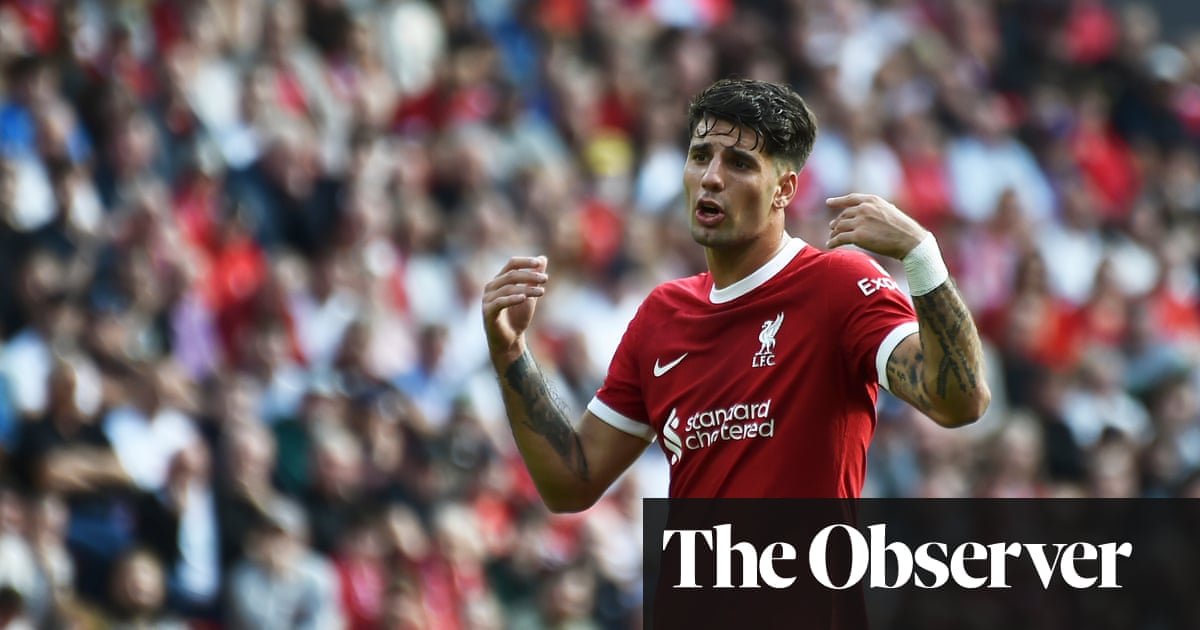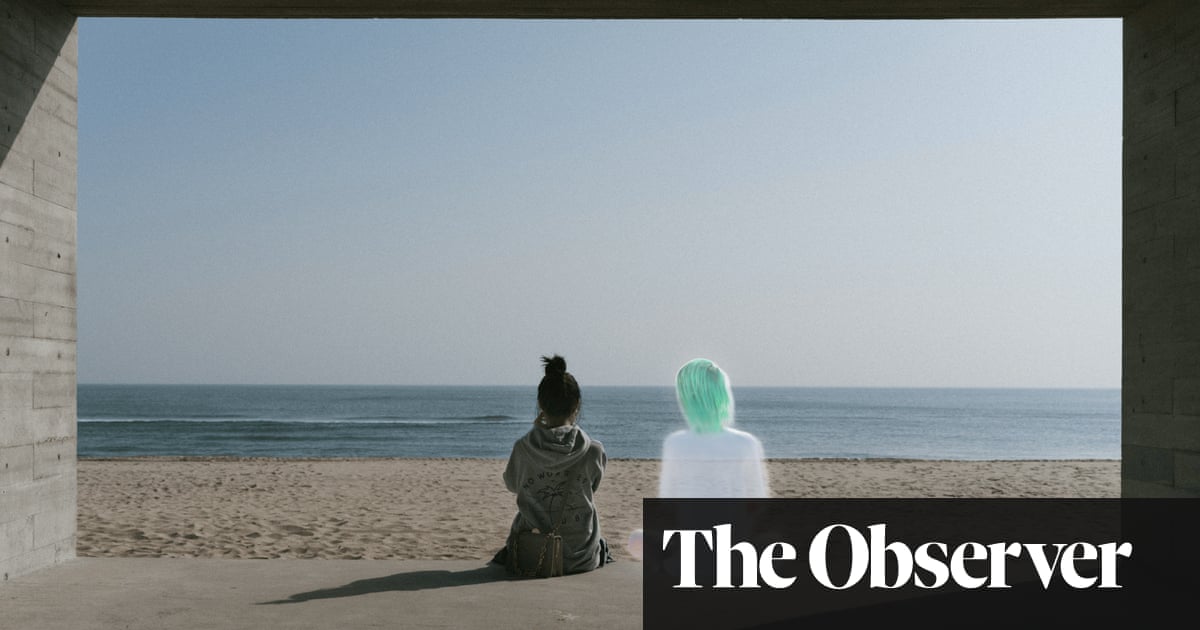
On a sleepy Sunday morning in Munich, just before eight o’clock, Joshua Kimmich arrives early with more surprises in tow. It is unexpected enough that one of the best young footballers in Europe has asked to do an in-depth interview before breakfast on a Sunday – even if the fact that the Bayern Munich defender and Germany international speaks fluent English is hardly a shock. Kimmich, who has just turned 23, is more surprising in his willingness to examine the testing periods of an otherwise glittering rise.
Joachim Löw, Germany’s manager, has described Kimmich as “one of the greatest talents I have seen in the past decade”. Last week Paul Breitner, who won five Bundesliga titles with Bayern and the World Cup in 1974, dredged up a familiar comparison between Kimmich and Philipp Lahm. “He understands tactics, the phases of the game, and knows when to change the rhythm,” Breitner said of Kimmich. “He has everything to be the second Lahm.”
Kimmich’s maturity, tactically and off the field, has marked him out as an almost certain future captain of Bayern and Germany. But rather than looking ahead to the World Cup or Tuesday’s Champions League quarter-final first leg, away against Sevilla, Kimmich explains how he felt when his career stagnated under Carlo Ancelotti last season.
He had shown rare versatility while playing as a central defender for Pep Guardiola at Bayern and at right-back for Germany during Euro 2016 – when he made the team of the tournament. He started well under Ancelotti and, as a defensive midfielder, Kimmich scored seven goals in his first 14 games. But Ancelotti is much more conservative than Guardiola and his preference for experience consigned Kimmich to the bench for months.
Kimmich winces at the memory. “As a young player the most important thing besides having a very good coach is to play a lot because you improve that way. So it was a very hard time for me. Everybody wants to talk with you and help you. But you have to deal with it alone. I know my family and my girlfriend are there for me. It’s important – especially with my girlfriend – that I talk about other things. But I had football on my mind all the time.
“‘What can I do to play? How do I improve?’ I trained longer and harder. Then I would get home and think: ‘Oh, shit, I have to change something.’ It’s very tough for your mind when it’s three months or longer. Now I think differently because sometimes you don’t have the power and you have to accept it. Maybe it’s good to learn this at a young age but you don’t want to suffer too long.”
Ancelotti soon lost the trust of the team and Jupp Heynckes replaced him last October. It was striking that Kimmich was one of the first players Heynckes asked to see in a private meeting. He underlined Kimmich’s importance to Bayern – and that trust was key to the player signing a new contract to 2023.
“Jupp talked about a few points I have to make better,” Kimmich says. “It’s really important for a young guy to have a coach who wants to improve you and believes in you.”
He smiles at his enthusiasm before remembering other difficult moments. “At 14 I went to Stuttgart academy and it was a big dream. But I felt lonely. It also got hard later. At 18 I hoped to play in the second team but the club said I was not strong enough.”
Kimmich’s determination was apparent as he insisted on a loan deal to RB Leipzig in 2013. His time at Leipzig, however, was initially challenging. “Ralf Rangnick was the coach and it was the perfect move. But I got injured. It was really hard because I was alone in a hotel and didn’t know anyone. But I grew up fast because you have to be tough if you want to play with big ambitions. I was a stronger person afterwards.”
Once Kimmich began to excel at Leipzig Guardiola noted his huge potential. In January 2015, as Kimmich says: “My agent told me a club wants to buy me. I asked him, ‘Who?’ He said FC Bayern Munich. I said: ‘Don’t joke with me.’ I couldn’t believe it because when you’re in the second league it’s not normal Bayern want you. Bayern can buy nearly any player in the world. It was even harder to believe Guardiola wants me.”
Kimmich grins in the deserted café as he remembers his first meeting with Guardiola. “My heart was beating very fast and it was a very special moment. I asked him: ‘Why me?’ He told me how he sees me, my style of play and what he likes. He had seen situations where I could develop technically and he said there were other positions I can play instead of defensive midfield. He had watched me in the under-19 European Championships and he characterised me very well. I thought: ‘Wow, this is a man who knows me and my style of play perfectly.’ He also told me I would get my chance with him. This is such a good answer when you’re young and want to compete with the best in the world.”
How did Guardiola help Kimmich most in their season together? “There are many things – but Pep showed me completely new spaces in the field. I improved a lot. He cares about your first touch a lot and that you know what to do even before you get the ball. You have to know where your team-mates are, so he wants you to screen the whole field. Pep would talk to you immediately if he recognised something. He also has this amazing view of football. For every opponent he had the perfect master plan.”
In one of their last matches, after moving him from central defence into midfield near the end of a 0-0 draw at Borussia Dortmund in May 2016, Guardiola raced towards Kimmich at the final whistle. In front of a crowd of 81,000 and millions on television Guardiola spoke urgently to the then 21-year-old. It looked as if he was berating Kimmich but after the game Guardiola said: “I told him he’s one of the best centre-backs in the world. He’s got absolutely everything.”
It was obvious Guardiola exhorted Kimmich to do even better – so what did he really say in those blistering moments? “I played at centre-back and five minutes before the end Xabi Alonso went out and Medhi Benatia came in. Benatia went into my position in defence and I took Xabi’s place in midfield. But I was still thinking like a centre-back. I was playing too deep and Medhi and I were nearly in the same position. Pep shouted at me in the game to move up but I didn’t recognise why. So he told me exactly what he meant before I left the field.
“In the first moments I was surprised. But, when you know Pep, this is what you get. Pep wants to tell you immediately to make you better. He wants to tell you there and then. Maybe it looked strange but for me it was great. It showed how much he sees and cares.”
Guardiola’s influence on Manchester City has been even more profound. “This shows how special Pep is. In the Premier League there are many clubs that normally compete for the title. But he improves his team so much he’s in another division to the others. Even in the Champions League they played Basel in the last round and won the first leg away 4-0. It’s unbelievable.”
The chance of Guardiola and Kimmich meeting again in the semi-finals or even the final of the Champions League remain. For the moment, however, Kimmich is intent on improving further – now that he has settled into playing right-back for both Bayern and Germany.
“My favourite position is defensive midfield but now I have a great opportunity to have the same place in both teams. For Germany since the Euros I mainly play as a right defender but sometimes as a centre-back with three at the back. It was not always easy going back to your club as a midfielder. You can lose confidence when you’re not in the rhythm. But whatever position I play I try to fill it with my own style. I don’t only defend. I want to create chances and also maybe score. You have to find the right balance and it’s important for a young player to not copy anyone and to be yourself.”
At least comparisons to Lahm are fading – as the maturity and versatility of Kimmich help him stand out as a future great in his own right. “I always wanted to be me and not a Lahm clone or Lahm the second. Of course Philipp was a great player – even when he had a bad game he was still better than the others. There’s a higher consistency in his performances and you want to match that. But you want to play as your own person. People aren’t making the comparison as much any more and that’s better for me.”
Kimmich also wants to improve off the pitch and he is learning Spanish. “I have free time and I thought what could I do to improve my mind? It’s hard to study and so A new language was a perfect solution. I’m taking a little break right now but I’ve been learning it for over a year. I can speak a bit with Arturo Vidal and the other Spanish speakers – but it’s far from perfect. Like everything, and football most of all, I can still get much better. The Guardian Sport












